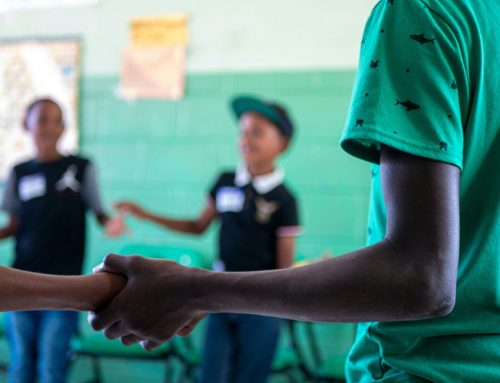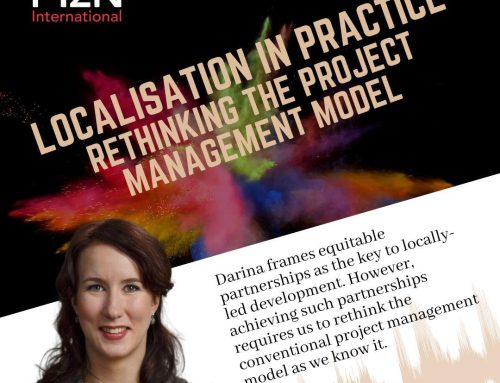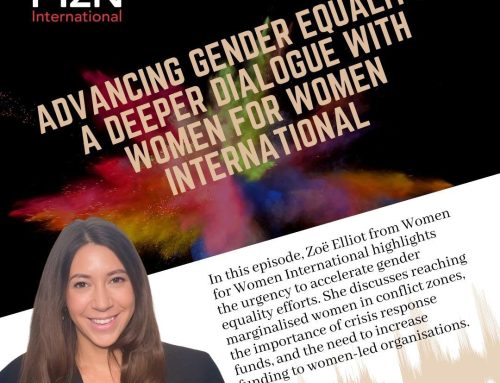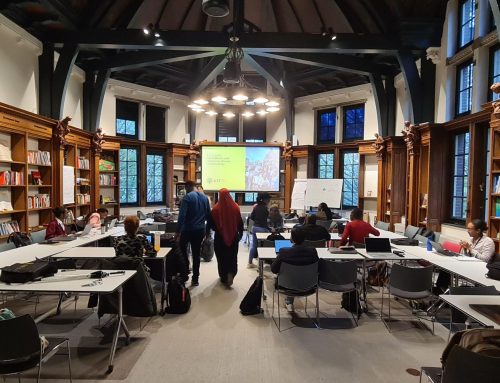A resource for NGOs to identify funding streams
Water security is a critical global issue, with forecasts indicating that by 2025, half of the world’s population could be living in areas facing water scarcity (UNICEF, 2024). Despite efforts from governments and humanitarian groups, the global water crisis is expected to worsen, due largely to the combined effects of climate change and population growth.
This lack of water access affects many other aspects of life: health, education, economy, and shelter, just to name a few. Goal 6 of the SDGs declares the importance of achieving “clean water and sanitation for all”. The following organizations stand out for their contributions to this goal, increasing access to safe water and alleviating the adverse effects of water scarcity.
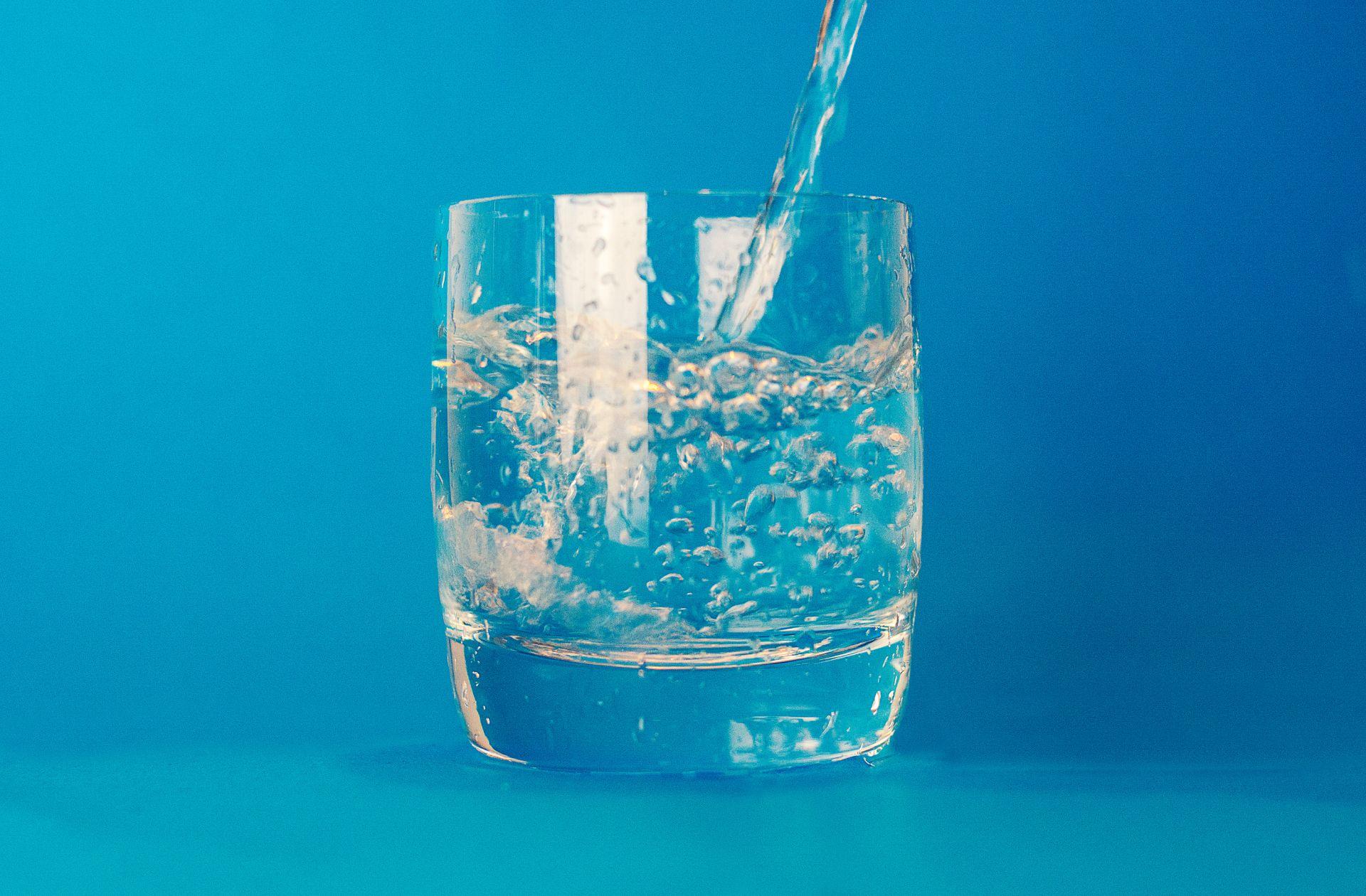
1. Global Environment Facility (GEF)

The Global Environment Facility (GEF) plays a significant role in addressing international water-related challenges by supporting projects that focus on sustainable water resource management, improving water quality, and enhancing water-related ecosystems. The GEF focuses on six primary focal areas: biodiversity, climate change mitigation, climate change adaptation, land degradation, international waters, and chemicals and waste. These focal areas represent major environmental challenges that transcend national borders and require effective collaborative efforts. Within each focal area, the GEF supports projects and programs that promote sustainable development, enhance resilience, and contribute to the conservation of biodiversity and ecosystems. The funding priorities reflect the GEF’s commitment to addressing urgent global environmental issues and promoting integrated approaches considering the interconnections between various environmental challenges.
GEF funds initiatives that aim to tackle issues such as water scarcity, pollution, and the depletion of aquatic biodiversity. It supports projects that promote integrated water resource management, emphasizing the importance of considering social, economic, and environmental factors in water-related decision-making processes. Additionally, the GEF encourages the adoption of innovative technologies and practices to improve water efficiency, reduce pollution, and ensure the long-term sustainability of water resources. Through its financial and technical assistance, the GEF contributes to fostering international cooperation and collaboration to address the complex and interconnected issues surrounding water on a global scale.
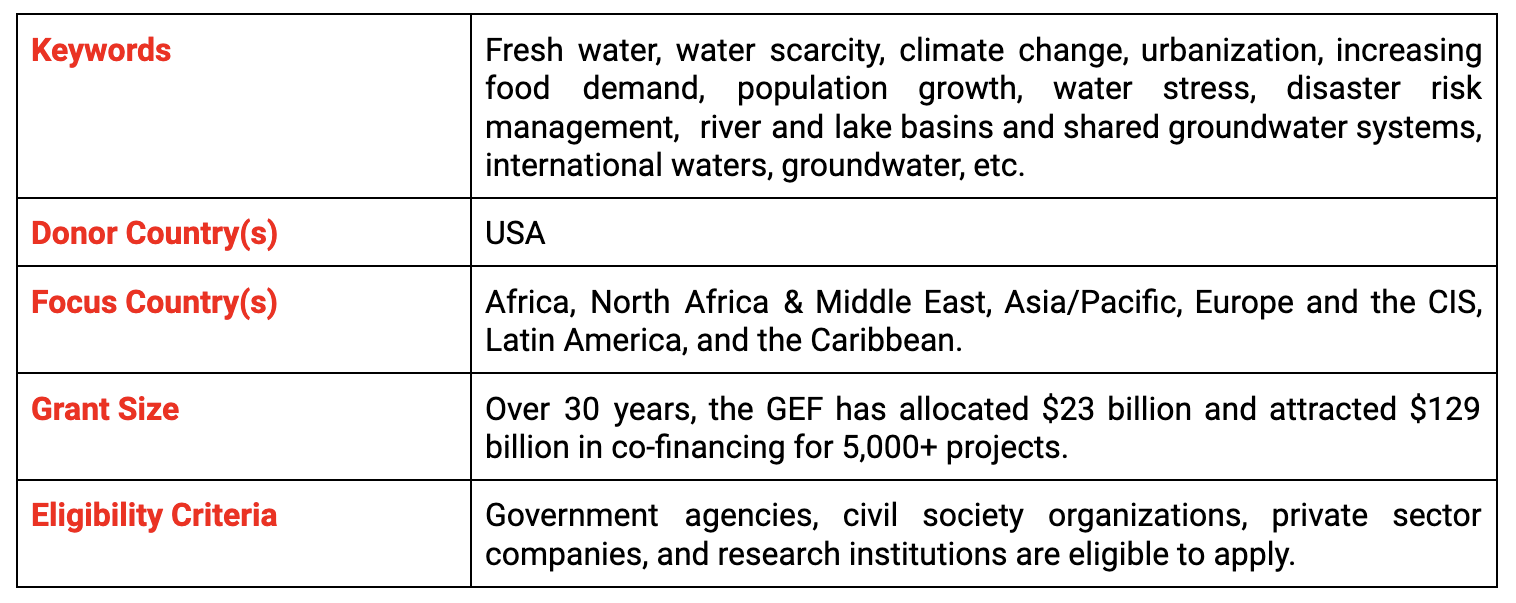
Open grants can be applied through agencies.
For more information, visit the Global Environment Facility website.
Contact GEF at communications@thegef.org
2. The Global Water Partnership

The Global Water Partnership (GWP) has played an important role in advancing integrated water resources management (IWRM) on a global scale since its establishment in 1996. GWP’s mission fosters collaboration among governments, international organizations, civil society, academia, and the private sector to address water-related challenges. With a focus on sustainable development and climate resilience, GWP advocates for holistic water management, emphasizing the interconnected nature of water resources. Through strategic partnerships, capacity development initiatives, and advocacy for water security, GWP contributes to shaping policies and practices that ensure equitable access to safe water and sanitation, aligning with Sustainable Development Goal 6 which underscores the importance of clean water and sanitation for all.
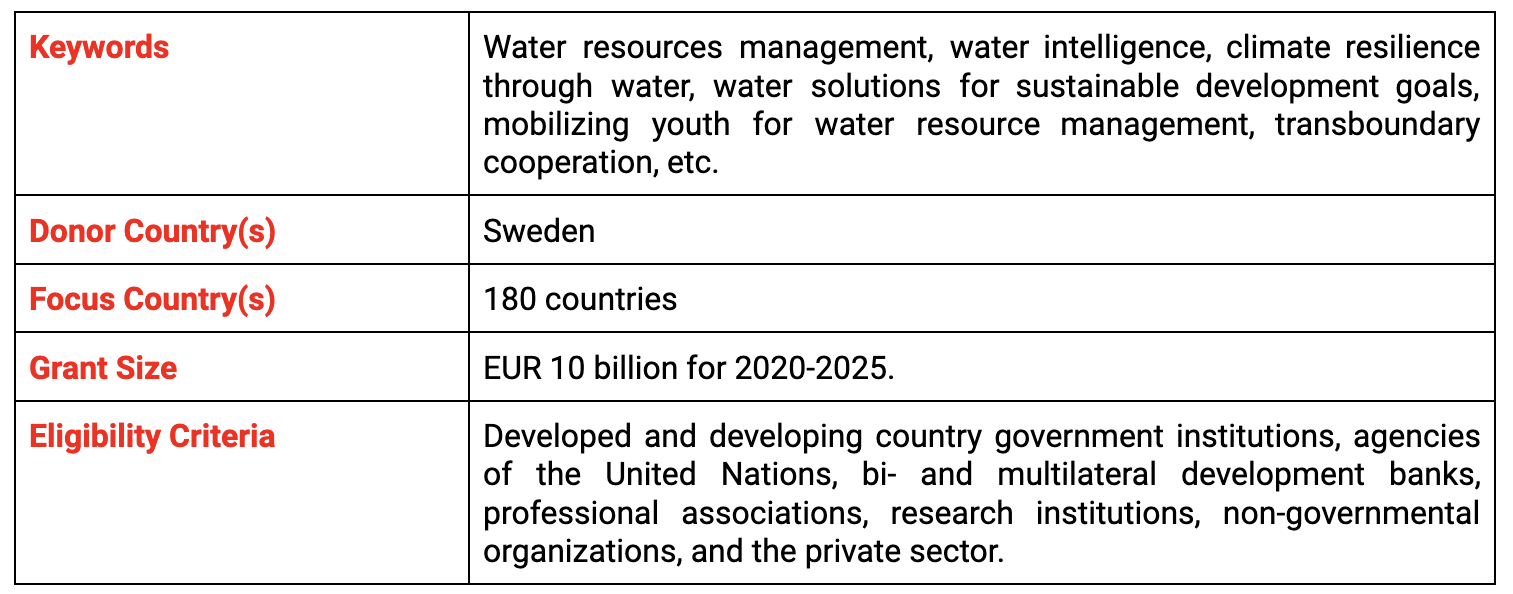
To review and apply for open grants, follow the partnership form link.
For more information, visit the Global Water Partnership website.
3. The Coca-Cola Foundation

The Coca-Cola Foundation is committed to environmental sustainability and community development. Focused on areas such as water stewardship, women’s empowerment, education, and community well-being, the foundation strives to make a positive impact on a broad scale. One of the significant focuses of the Coca-Cola Foundation is on water stewardship, aiming to replenish the water it uses in its beverages and their production. The Foundation supports projects related to water conservation, access to clean water, and watershed protection. These initiatives are often carried out in collaboration with local communities, governments, NGOs, and other stakeholders.
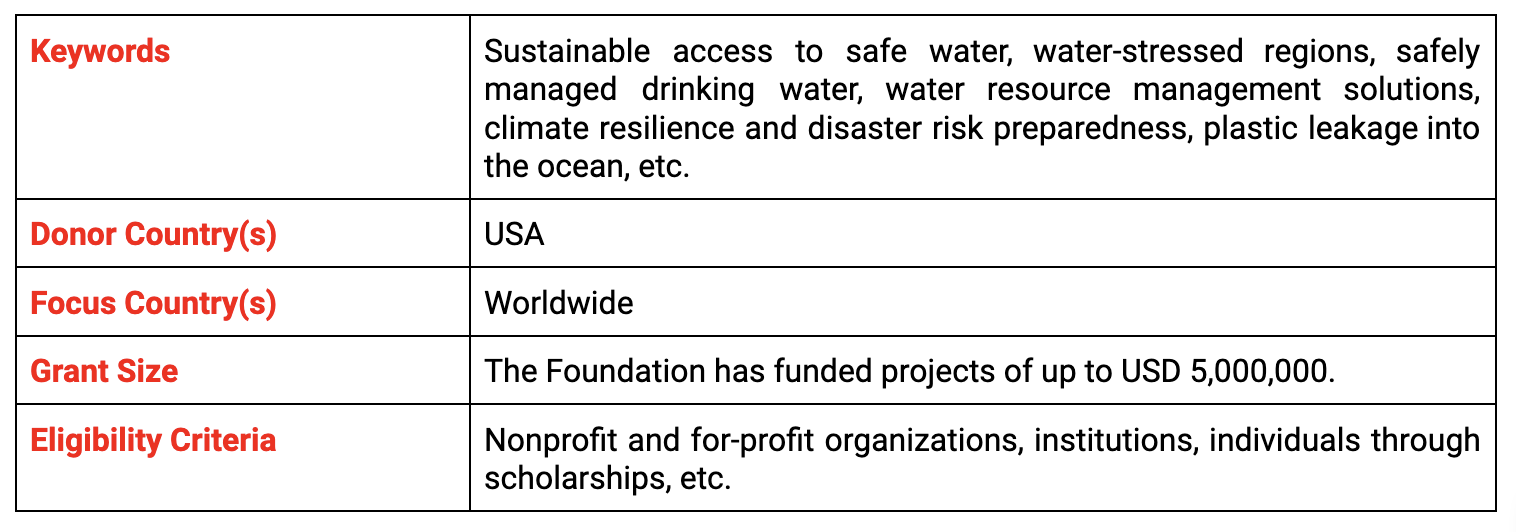
To review and apply for open grants, follow the calls for proposals.
For more information, visit the Coca-Cola Foundation website.
Contact Coca-Cola Foundation on the Contact Us page.
4. USAID, Global Water Strategy

USAID actively engages with governments and local partners to accelerate progress toward universal water and sanitation access, contributing to a water-secure world. Aligned with the Global Water Strategy, the U.S. government invests in four interconnected objectives: strengthening sector governance, improving equitable access to water and sanitation services, enhancing climate-resilient conservation of freshwater resources, and addressing conflict and fragility related to water. USAID has outlined its implementation plan with a results framework, priorities, technical approaches, and ambitious targets for water and sanitation access, finance, and institutional strengthening. As part of its ongoing commitment, USAID has expanded its ambition by committing to reach an additional 22 million people with access to safe drinking water and access to sanitation over the next five years.
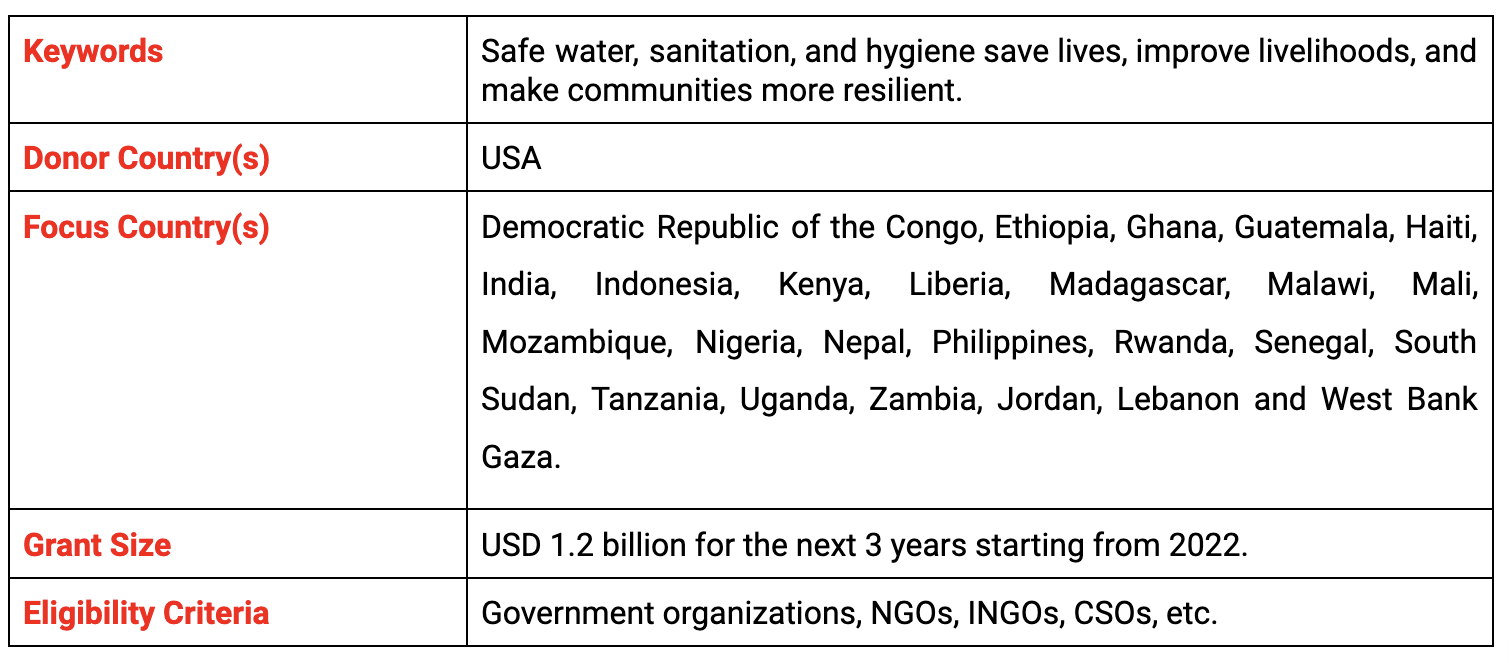
To review and apply for open grants, follow the calls for proposals.
For more information, visit the USAID Global Water Strategy page.
Contact USAID at waterteam@usaid.gov
5. Water and Energy for Food (WE4F)

The Water and Energy for Food (WE4F) supports projects that promote innovative solutions and technologies to enhance water and energy efficiency in agriculture. WE4F collaborates with entrepreneurs, researchers, and organizations to implement and scale initiatives that contribute to sustainable and resilient food systems. The initiative recognizes the interconnectedness of water and energy resources in the context of food production and seeks to foster partnerships that can lead to more efficient and sustainable practices. The main goal is to contribute to global efforts in achieving food security while considering the environmental and social aspects of resource use.
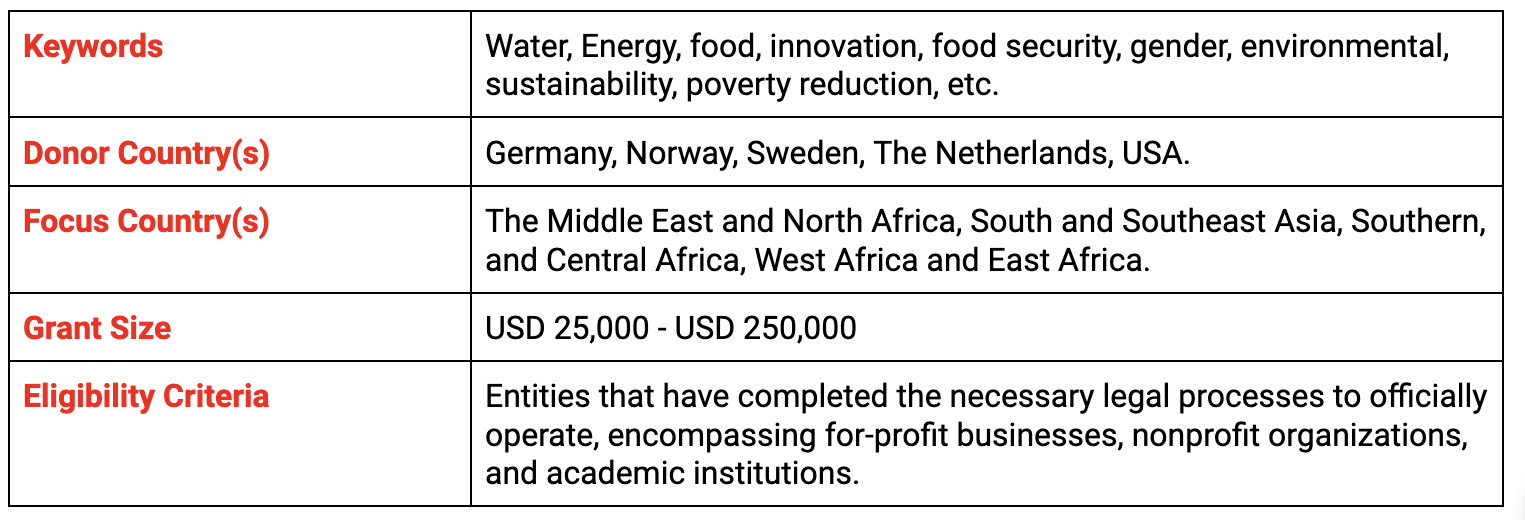
To review and apply for open grants, follow the calls for proposals.
For more information, visit the WE4F website.
Get in contact using the contact form.
6. Women for Water Partnership (WfWP)

The Women for Water Partnership (WfWP) is a global alliance that brings together women leaders, experts, and organizations committed to addressing water-related challenges. Founded in 2005, WfWP focuses on empowering women to play key roles in water management, policy development, and sustainable development efforts. With a mission to promote gender-responsive solutions in the water sector, WfWP advocates for the inclusion of women’s perspectives in decision-making processes related to water governance. The partnership works collaboratively with governments, international organizations, and local communities to advance gender equality in water-related initiatives, recognizing the pivotal role that women play in ensuring the sustainable and equitable use of water resources worldwide. Through its diverse network, WfWP strives to amplify the voices of women and contribute to the achievement of global water and sanitation goals. WfWP operates a Small Grants Program, and prospective members can apply for funding by completing the membership application. WfWP has also been actively involved in international events, conferences, and campaigns related to water, providing a platform for women to share their expertise and experiences.
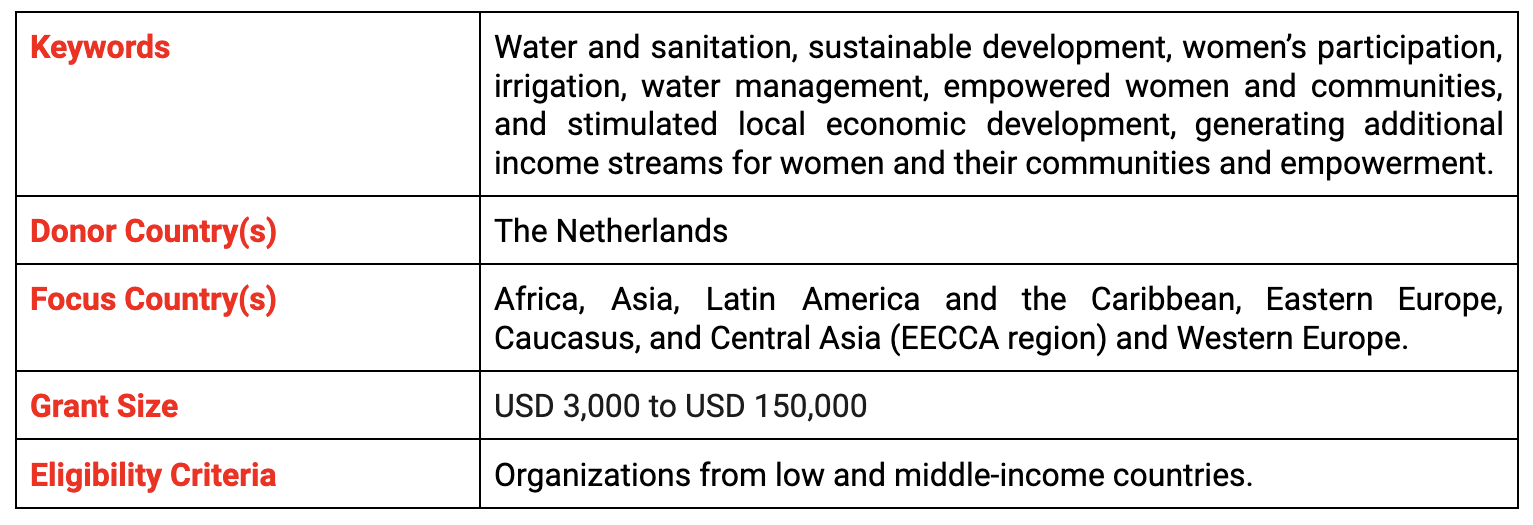
To access funding opportunities, applicants are encouraged to apply for WfWP membership using the membership contact form. The application should include basic organizational details and two references from legal entities, preferably with recommendations from current WfWP member organizations or strategic partners.
For more information, visit the WfWP website.
Contact WfWP at secretariat@womenforwater.org.
7. SUEZ Foundation
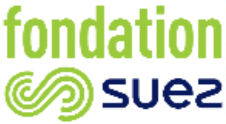
The SUEZ Foundation is actively involved in advancing sustainable access to crucial services such as water, sanitation, and hygiene in developing nations, particularly for disadvantaged communities. In France, the foundation is committed to fostering a just ecological transition that includes social inclusion. In 2024, the Foundation aims to create a fund to back innovative projects addressing environmental and social challenges in regions where SUEZ operates. The Foundation’s efforts align with the United Nations’ Sustainable Development Goals.

The Foundation publishes two calls for proposals in January and June. To review and apply for open
grants, follow the application website.
For more information, visit the SUEZ website.
Contact SUEZ at fondation-suez@suez.com
8. The Water Research Foundation
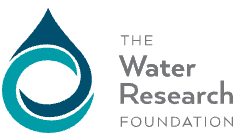
The Water Research Foundation (WRF) resulted from the merger of three research collaboratives: WateReuse Research Foundation, Water Environment Research Foundation, and Water Research Foundation. Serving as a prominent research organization, the Foundation is dedicated to advancing the science of all water to address the changing needs of its subscribers and the water industry. As a non-profit educational entity, the Foundation actively finances, oversees, and publishes research on the technology, operation, and management of drinking water, wastewater, reuse, and stormwater systems. The primary goal is to ensure water quality and enhance water services for the public.

To review and apply for open grants, follow the calls for proposals.
For more information, visit the SUEZ website.
Contact Information – contact WRF at info@waterrf.org
9. Poul Due Jensen Foundation

The Poul Due Jensen Foundation is deeply rooted in the vision of its founder, Poul Due Jensen, the creator of Grundfos. Established in 1975, the foundation exemplifies a commitment to corporate social responsibility by prioritizing initiatives in water, research, and societal well-being. With a significant emphasis on water-related challenges, the foundation actively supports projects fostering global access to clean water and improved sanitation. Beyond water, it extends its impact through grants for research and educational programs, particularly focusing on advancements in water technology, engineering, and sustainable development. By aligning with Grundfos’ innovative spirit, the Poul Due Jensen Foundation continues to play a vital role in positively shaping communities and contributing to solutions that address pressing global issues.

To review and apply for open grants, reach out using the contact form.
For more information, visit the Poul Due Jensen Foundation website.
Contact Poul Due Jensen at pdjf@grundfos.com.
10. PepsiCo Foundation

The PepsiCo Foundation is the philanthropic arm of PepsiCo, one of the world’s largest food and beverage companies. The Foundation is committed to addressing global challenges related to water, nutrition, and sustainable agriculture. It works to empower communities by supporting initiatives that promote access to clean water, improve nutrition, and enhance sustainable farming practices. The Foundation often collaborates with non-profit organizations, governmental agencies, and other partners to implement projects and programs that have a positive impact on communities worldwide. The PepsiCo Foundation has been involved in disaster relief efforts and community development projects, aligning with PepsiCo’s broader commitment to corporate social responsibility. For the most recent and detailed information, it is advisable to check the official website of the PepsiCo Foundation or contact them directly.

To review and apply for open grants, contact the corporate foundation through the information link.
For more information, visit the PepsiCo Foundation website.
Contact PepsiCo Foundation on the contact page.
MzN’s funding team works with over 1000 foundations and other donors partnering NGOs and donors for maximum impact. Find out more about our funding support and how we do it.
Your Input Matters! What do you think? Let us know.

